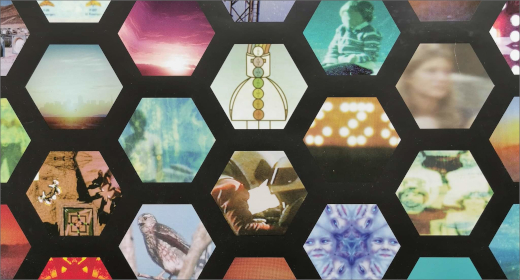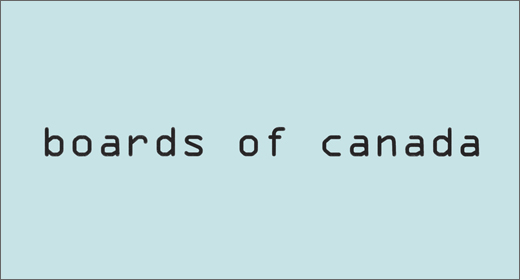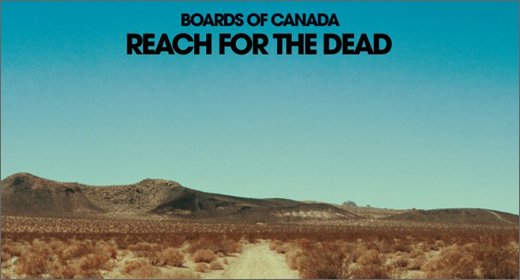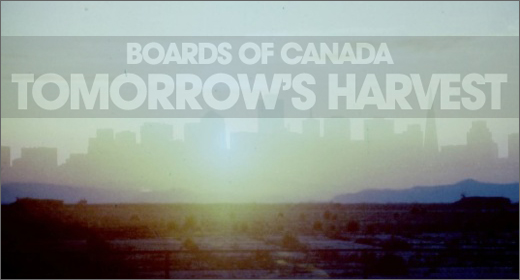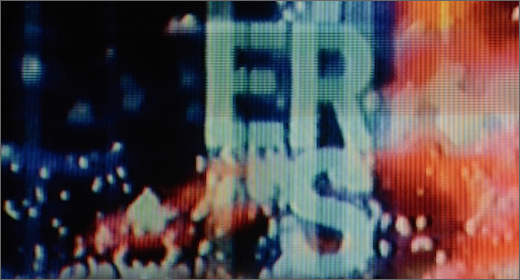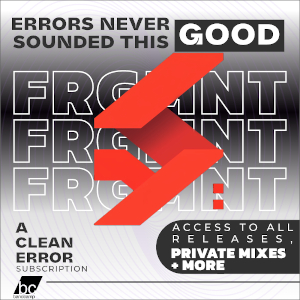It’s the roaring 20’s again. We’ve just scraped the new millennium, but are well into the century. Not a lot of comfort comes from seeing comparisons of the repetitions in history. So I cast my mind back. The prime of my youth. The height of personal self discovery. The sun was shining, not a cloud in sight. What joys await me?
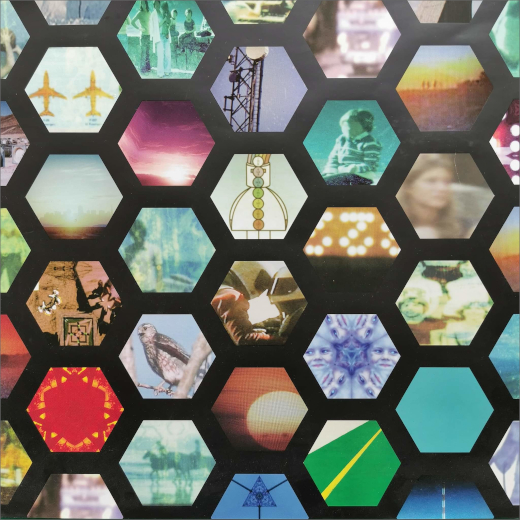
In 1998 my friend Andrew passed me a copy of an album. Even the very sight of the album evoked a weird sensation that I was looking at something I had seen before. The imagery, the colors, and the font all seemed familiar to me somehow. When I eventually got round to listening to it, this feeling came back.
I was 18 years old when I first heard this recording. I’d just finished college (quit rather) and didn’t know what to do with my life, so I indulged in music. At first hearing, nothing about the album struck me as particularly amazing. It didn’t seem to compel me with any over arranged complex trickery, which I and most people I knew enjoyed at the time. I took time to research their back catalog and ordered the Aquarius (Skam, 1998) and High Scores EP’s (Skam, 1996). After listening to these, I really got more of an idea about how interesting their music was. Nothing else really compared to it at the time and I sensed that there was also something more to be found beneath the surface. Some twenty one years later and to me their work is placed firmly on the top shelf, and it’s 21 years later where I believe I have finally solved the mystery of the album title Music Has The Right To Children (Warp/Skam, 1998).
Music has the right to children as opposed to children have the right to music. Was this a realization from the brothers that they became aware of a change in how music was being used within mainstream culture at the time? A change that possibly started in the early to mid 80’s?
Music for television
At the end of the 60’s and 70’s a lot of extremely talented musicians were contracted to make music for television shows. This was a time of ‘Library music labels’ such as April Orchestra, Bruton Music, KPM and De Wolfe and many, many others. These labels gave a platform to the music we heard more than nearly anything else. It was the cartoons we watched when we ate our sandwiches after school, in the advertisements, and in particular, the documentaries and education programs we were forced to watch at school whilst sat crossed-legged, on the cold hard floor. Watching television at school was always a strange thing. They’d wheel out this huge monitor on a trolley-cart and you’d hope that you were about to watch an episode of The A-Team, but then some throw-back 70’s science program would start to play, presented by someone wearing brown trousers and with a dodgy haircut. But, this was a time where we had a lot of space for total creativity and experimentation.
Creative freedom was apparent. There was little fear in worrying about offending. In fact, self censoring likely never entered anyone’s minds. Society wasn’t vulnerable then. I remember listening to TV themes for education programs like the British 70’s show Stop, Look, Listen. The music had a similar feel to it like that of the music from the cartoon Sir Prancelot by Alan Parker, a track that Boards of Canada (also known as Scottish electronic music duo comprised of brothers Mike Sandison and Marcus Eoin) would later go on to sample in the early days of their creativity, and coincidentally, a title of an Autechre track. Then the exposure to all this great music eventually stopped. Looking back, even I noticed this. Children were no longer exposed to music of that caliber. This thoughtful and usually experimental electronic music disappeared from mainstream culture within TV and advertising. I can only put this down to how the technology became cheaper and more accessible. With Roland turning out their simple programmable machines, people such as the likes of Pete Waterman could churn out hits for Bananarama, Kylie Minogue and Jason Donovan. All of a sudden this music was (I believe) primarily aimed at children was not just about music alone. Added was a touch of imagery, fashion, and sexuality. It was flashing lights and not just sound on its own—so perhaps the music didn’t need to try so hard.
The musical fallout from mind expanded individuals of the 1960’s sort of took a back seat. This wasn’t all bad of course. What we had to look forward to was the rise of house, acid house, electro, jungle, drum and bass, rap, gangsta rap, hip hop and all the culture, fashion, and dance moves that came with it. The future certainly made way for variety. Sure—the summer of love was great, but… “In the middle of the night, it feels so right and then tomorrow morning, ohhh, then we come down”. Jarvis Cocker (Pulp).
Something was missing—enter Boards of Canada and Music Has The Right To Children.
Will BOC release another album?
I hope I am wrong, but I have a horrible feeling that Boards of Canada won’t release another album under this project. Having said that, I think they may have thought this way when they created The Campfire Headphase (Warp, 2005). There is something about that album that sounds like they were saying goodbye. Obviously they went on to create Tomorrow’s Harvest (Warp, 2013) and it was extremely well suited to today’s climate. Once again that album gives optimism towards the end, but then ends with absolute despair and dread.
Boards of Canada are very true to themselves and their followers. Although they take music very seriously, I don’t think they’ve let the seriousness of their success affect them. They’ve rarely played live and I personally don’t believe they will again. I think they see it as a bit of a bleak and pointless task, which would only serve as facade. They create music designed to interfere with your everyday thought processes. But have they exhausted themselves? They are philosophers of sound and it would be really interesting to know about their own personal mental state of mind and political identity, other than what we can work out from the music.
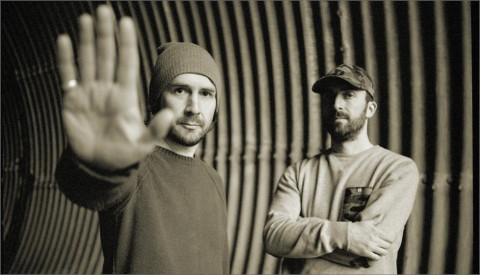
The politics of music
I once got into an argument about politics on this Facebook group dedicated to the band. I explained that I believed their music has always expressed deep (although well hidden) political messages. References to native American culture, 1969 and the Manson family murders bringing around the demise of that whole revolutionary movement of counter-culture, energy warnings, the attack on the branch Dravidians and the right to religious freedom, drug references, mathematical cues, there is an angle on virtually every track. The Geogaddi (Warp, 2002) album was like the soundtrack for western culture in the wake of 9/11. The opening track, “Ready Lets Go” seemed to declare that you’re about to trip out and that it’s not necessarily going to be a good trip. You’re not ever going to be the same again, nor is the world. But you need to face it. For me personally, listening to this album felt like a right of passage. I was 22 now and allegedly a man, but no where near prepared for the world. Dare I say it, but if that album was in its creative process during the time of the planning of the attack and the day itself, then I’d say it has prophetic status.
I get the feeling that Boards of Canada care deeply about the direction humanity is taking. In 2013 we received Tomorrow’s Harvest. This album came in the form of a clear message. A very stark warning of our place in history. It acted as a wake up call and offered a glimmer of hope. Tomorrow’s Harvest will be good, if we take note and start sowing the seeds today.
One Very Important Thought
The Societas X Tape (WXAXRXP) mix did the exact same. The second to last track on the mix, Bruce Haack Angel Child offers us a glimmer of hope and a wake up call with the lyrics “Butterfly soon to fall, all is love, love is all.” But the ending track of Christian Chevallier “Sea Cathedral” seemed to summarize that society doesn’t exist. Society is an illusion of constant changing rules and opinions. A mass of minds moving like tides across the biosphere. We can all have bright ideas, but in the end the planet wins. You are here and now, but one day you’ll be over and consumed, just like everything else.






